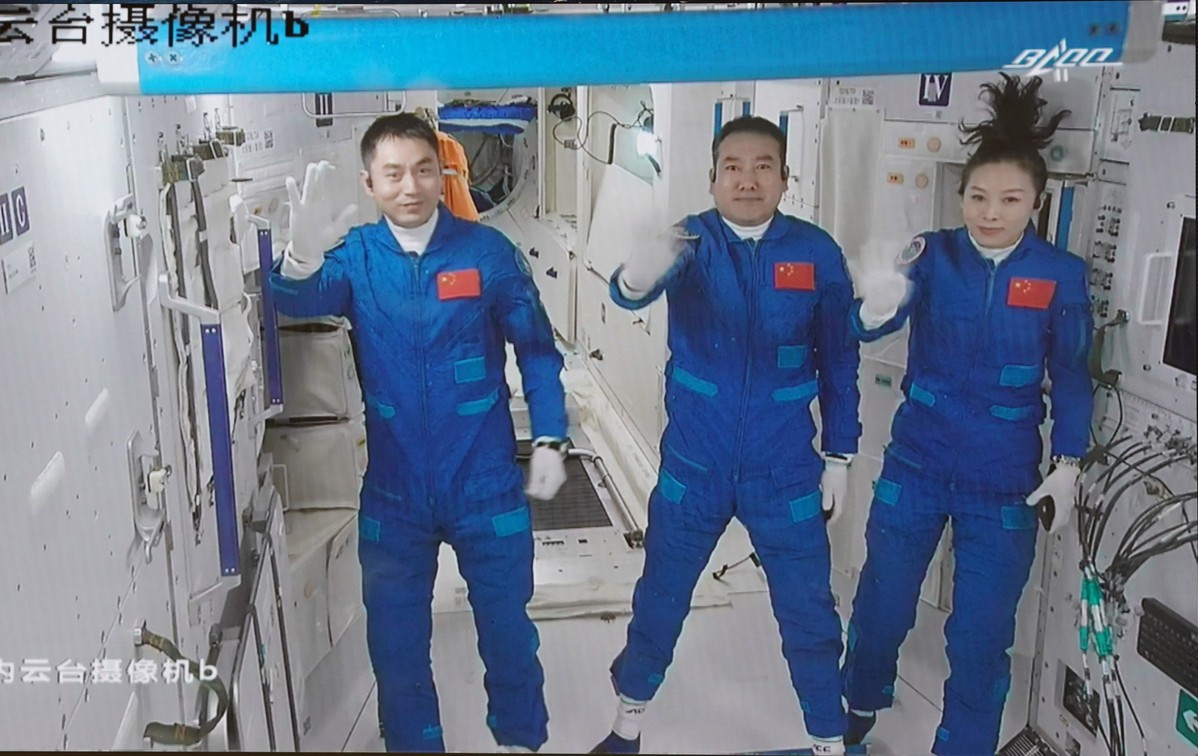Netizens' worries answered over female astronauts' health
chinadaily.com.cn | Updated: 2021-10-18 13:14

Chinese netizens have asked questions about the life of a female astronaut's six-month stay in China's space station core module Tianhe, especially during her menstrual period.
Along with two male astronauts, Wang Yaping, the mother of a 5-year-old girl, entered Tianhe on Oct 16, and she will be the first Chinese woman to stay there for six months and the first Chinese woman to carry out a spacewalk.
Many people have expressed worries women do not have a regular menstrual period in space, as they think blood in the womb would be difficult to leave the body or a retrograde menstruation might happen due to the low-gravity environment.
They also worry that the retrograde menstruation would lead to pains and other health problems, and therefore female astronauts at NASA would take drugs to change the ovulation period.
Female astronauts can take drugs of that sort for short space missions, but such methods cannot be used for long-term flights, as they could harm their health.
However, female astronauts with NASA of the US have done long-term missions with no retrograde menstruations reported. As far as women astronauts' health in general, there are several precautions being taken.
Practice shows female astronauts will have regular menstrual periods, but should not do spacewalks during that time, which could cause them to be vulnerable to decompression sickness, according to Pang Zhihao, a spaceflight researcher in Beijing and a former analyst at the China Academy of Space Technology.
China has prepared for female astronauts' long-term stay in space stations, Pang added.
The waste collection system has been adapted to females, and the Tianzhou 3 cargo craft has brought sanitation products to the space station.
























